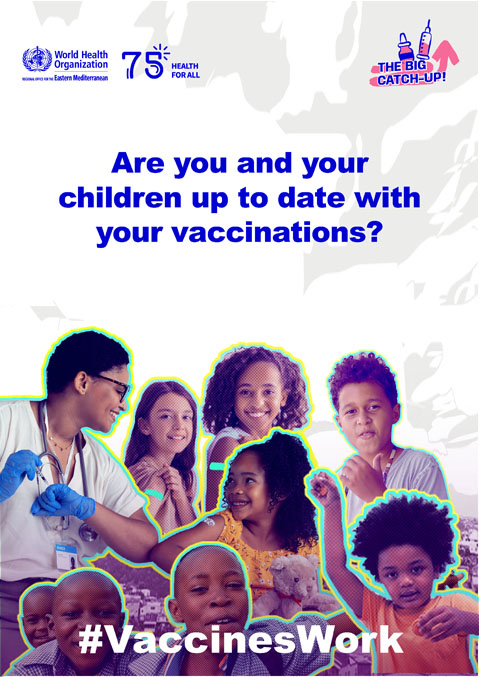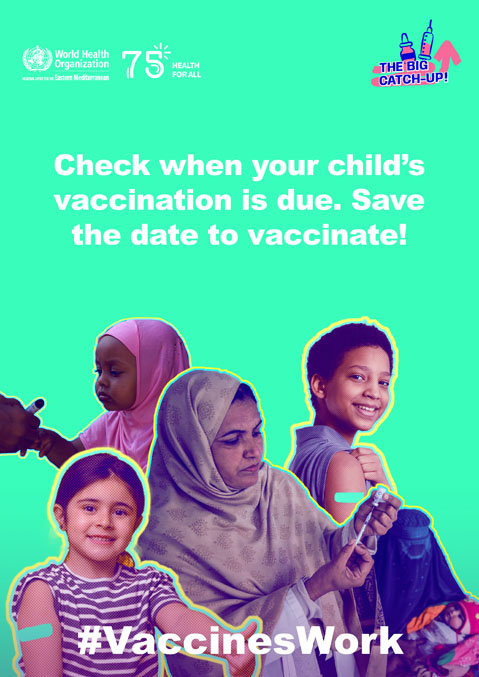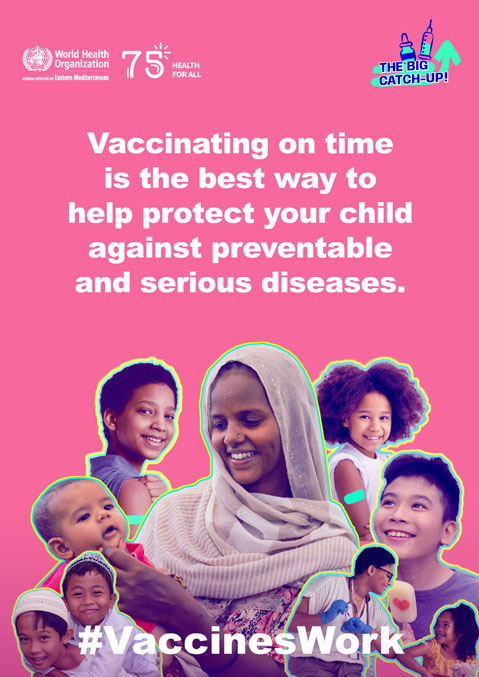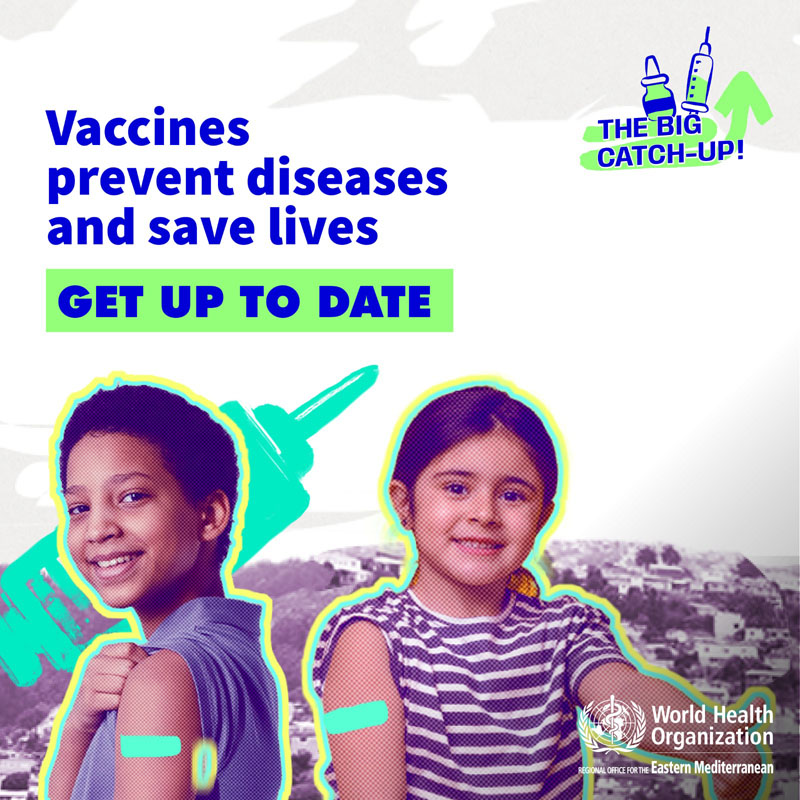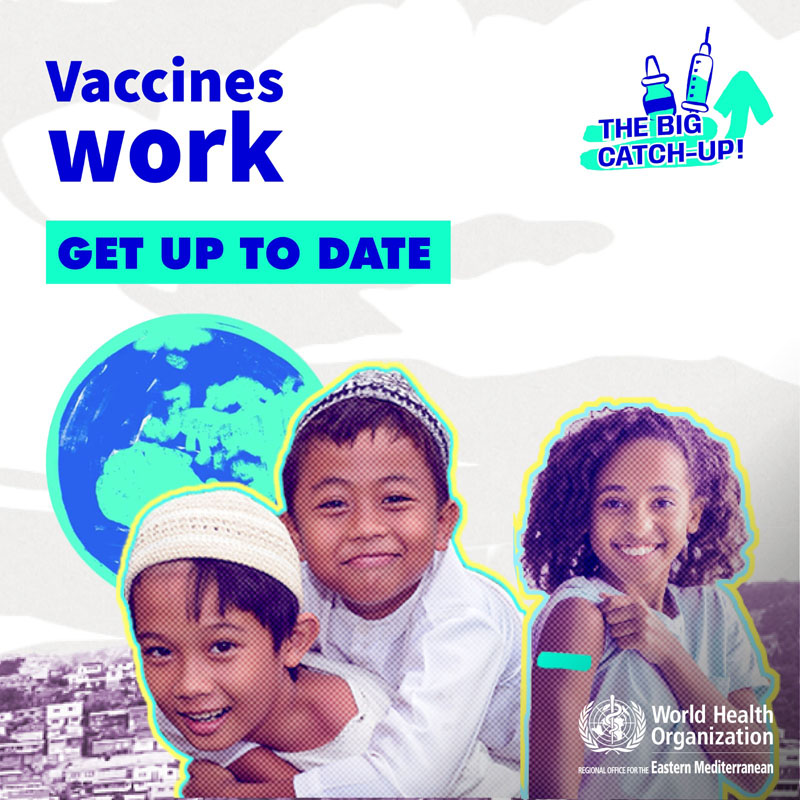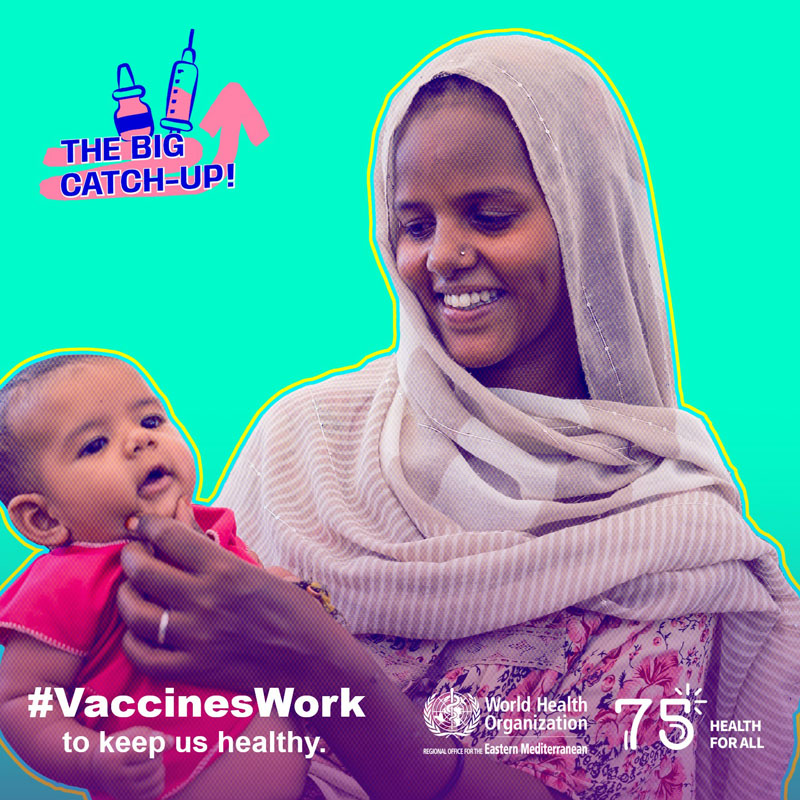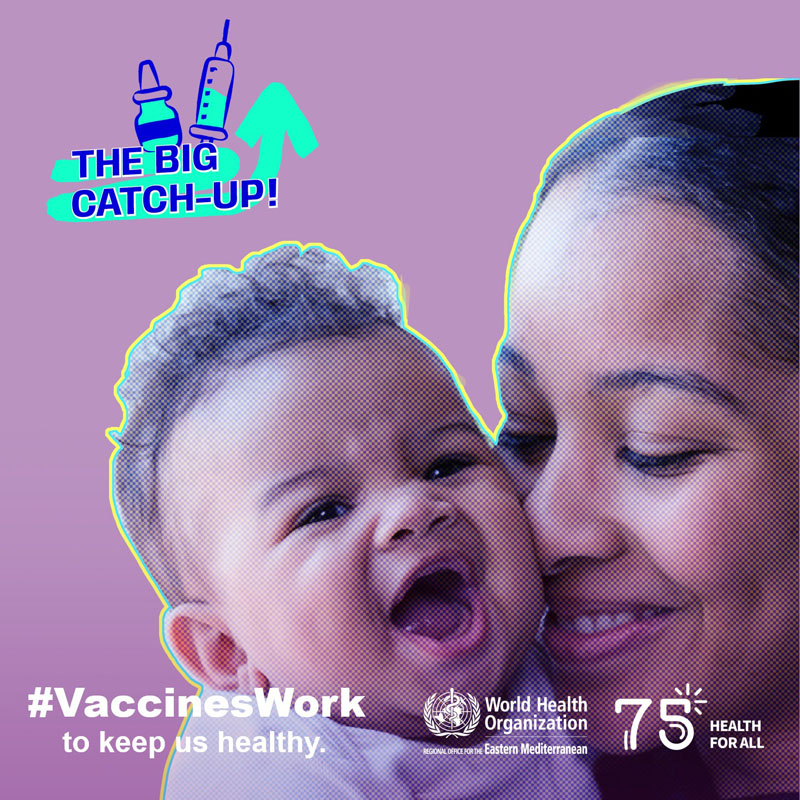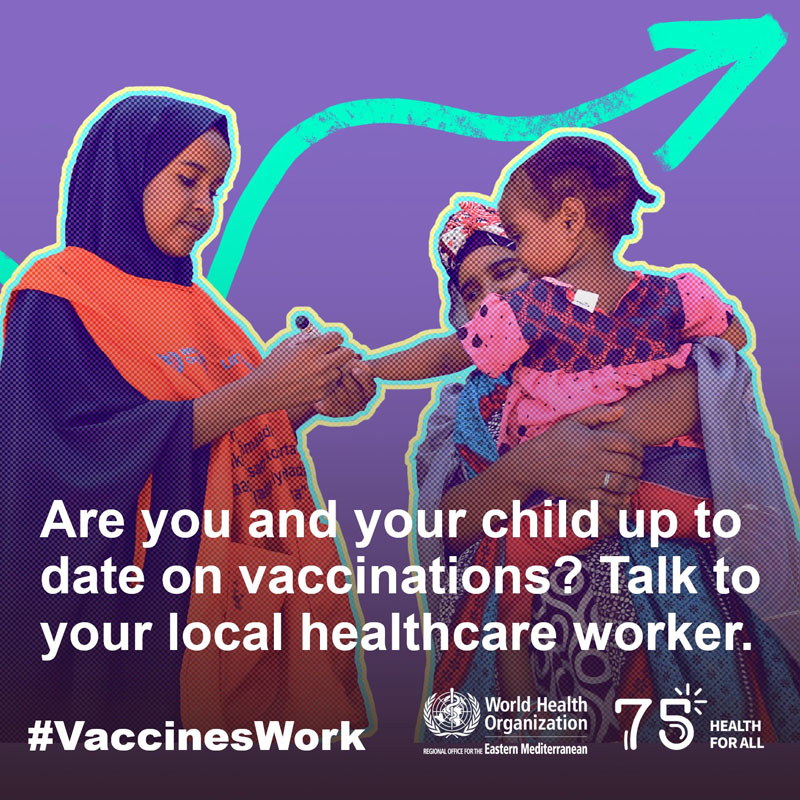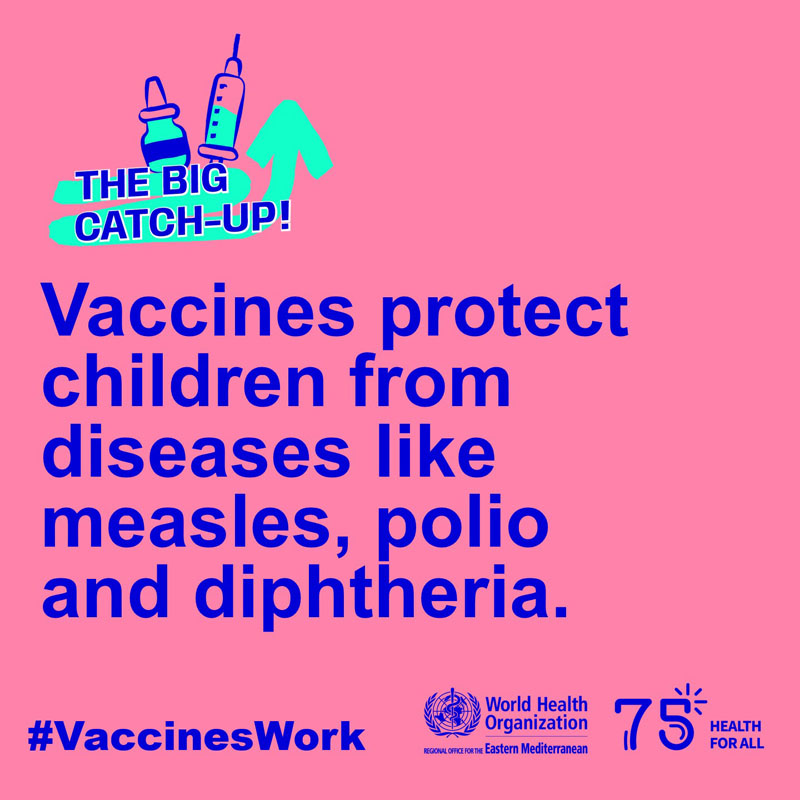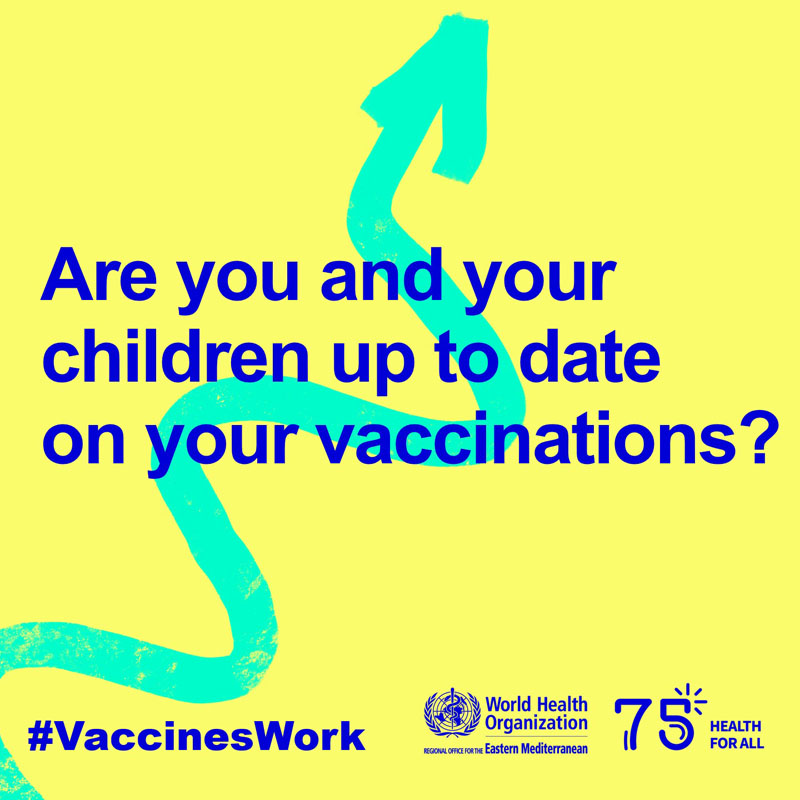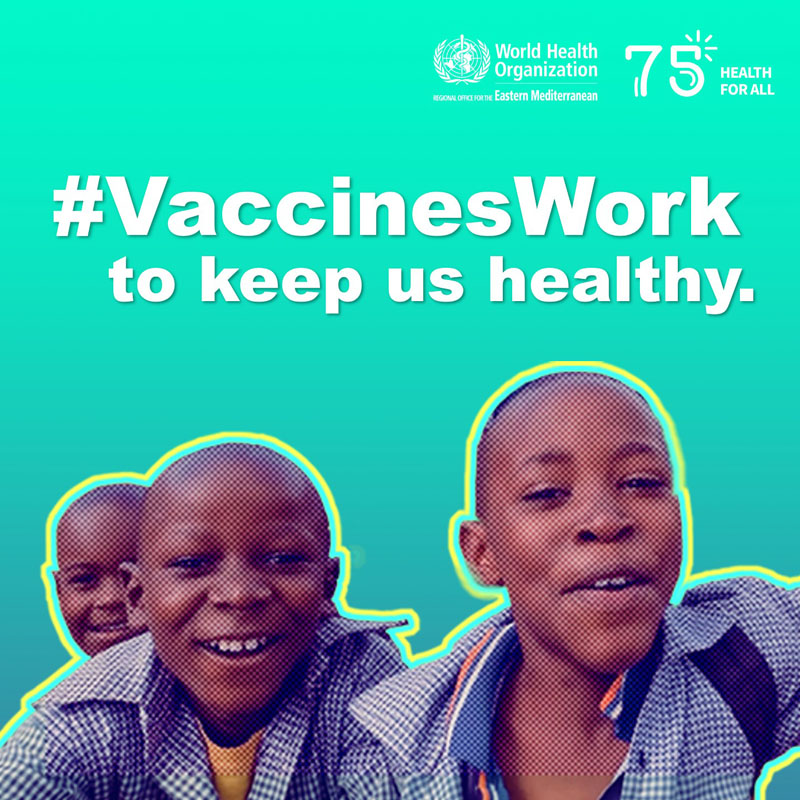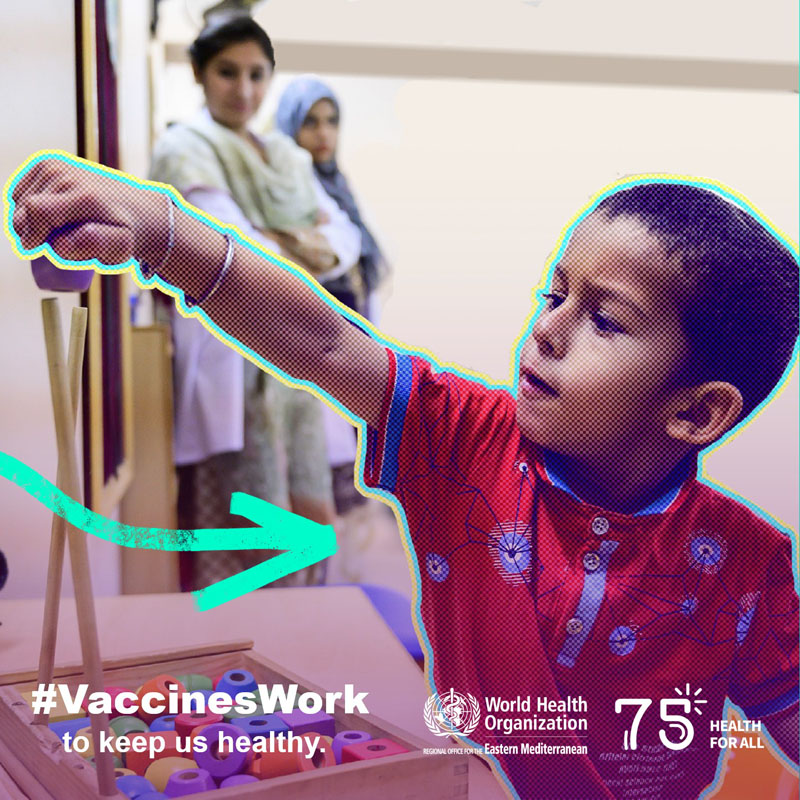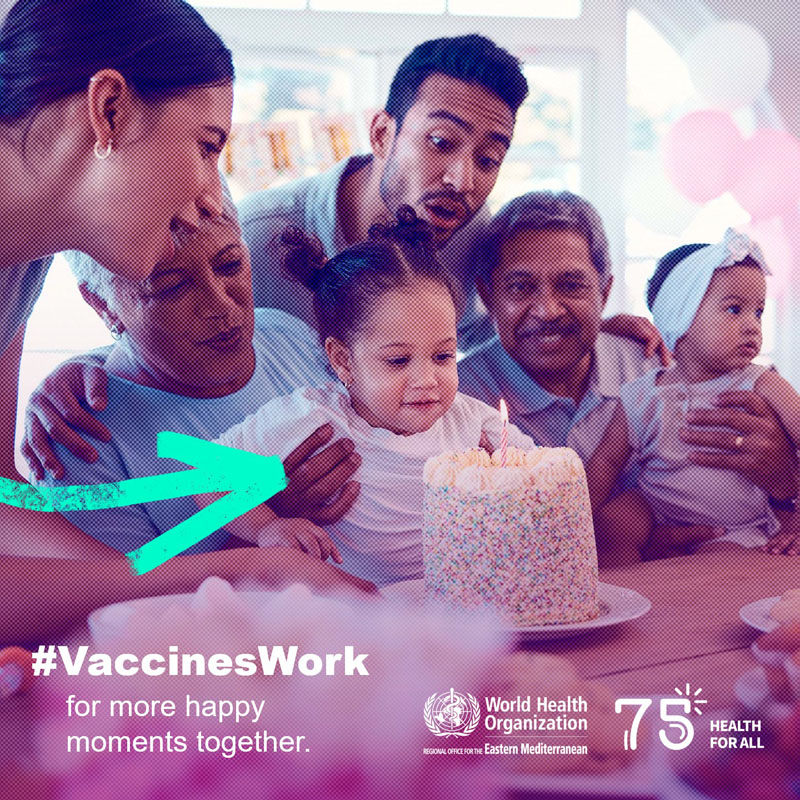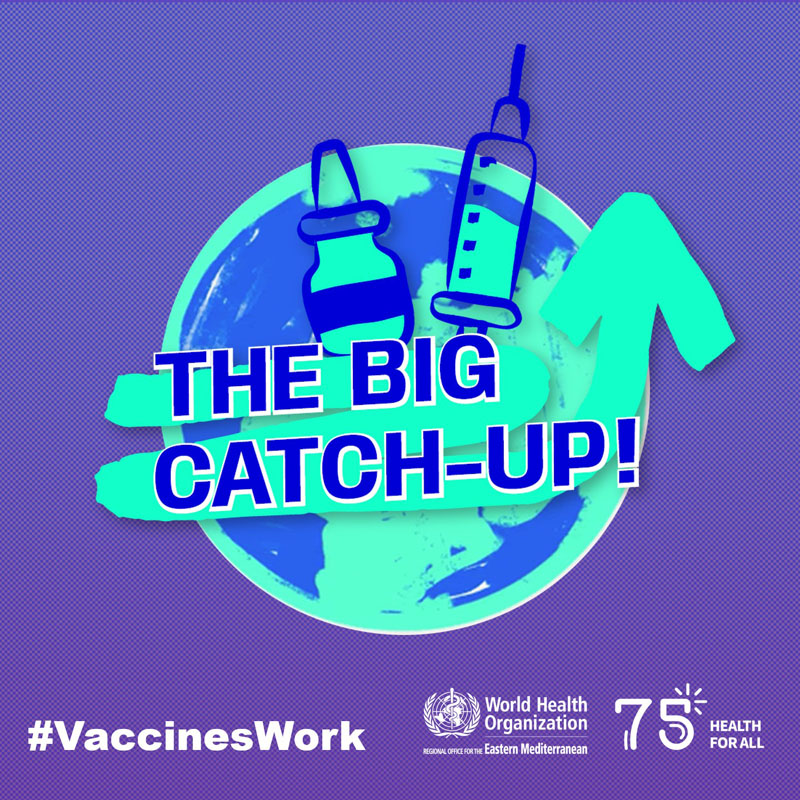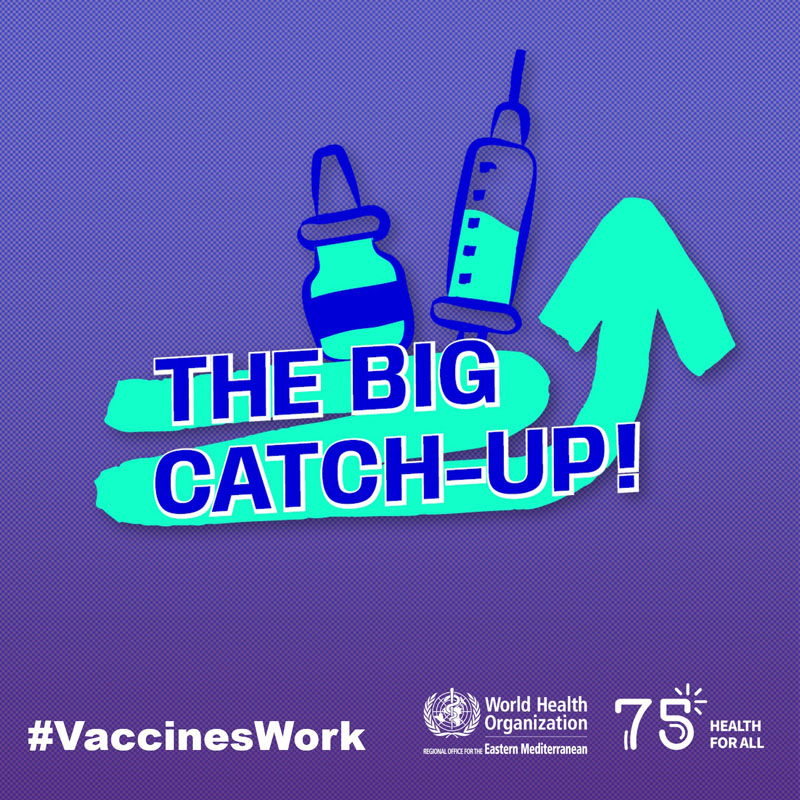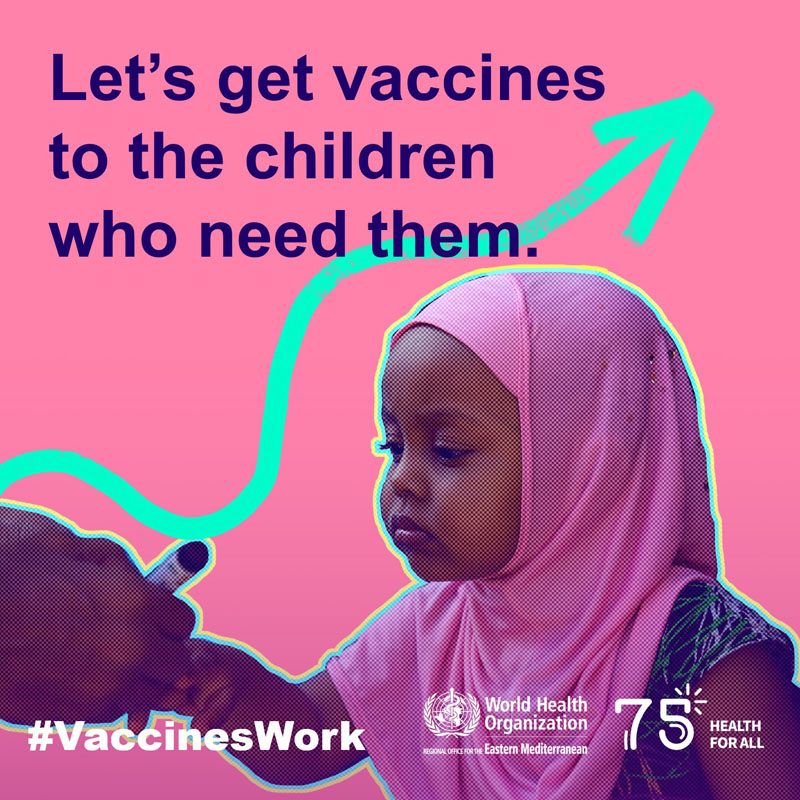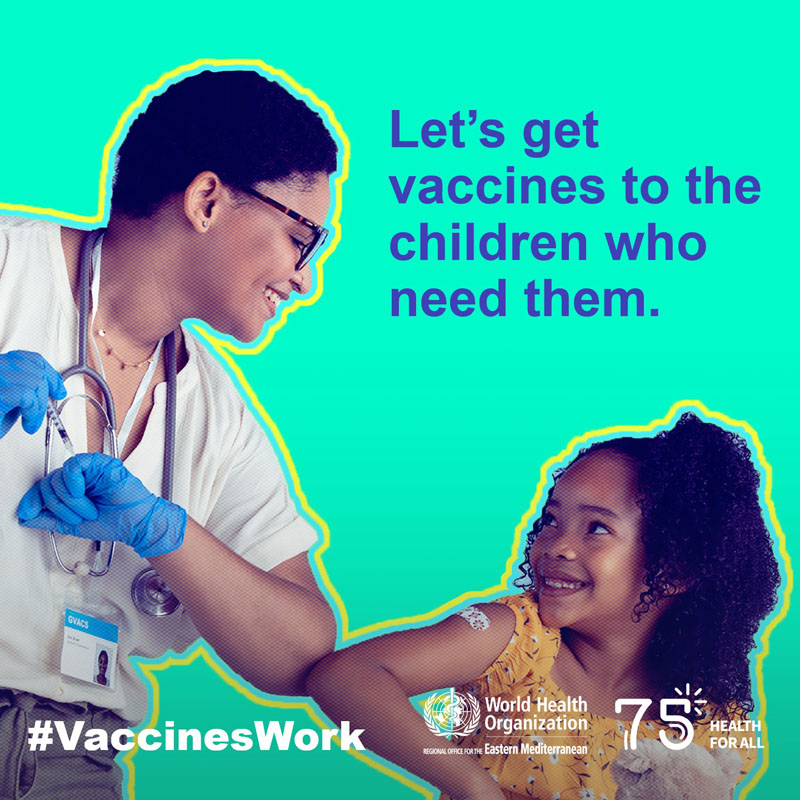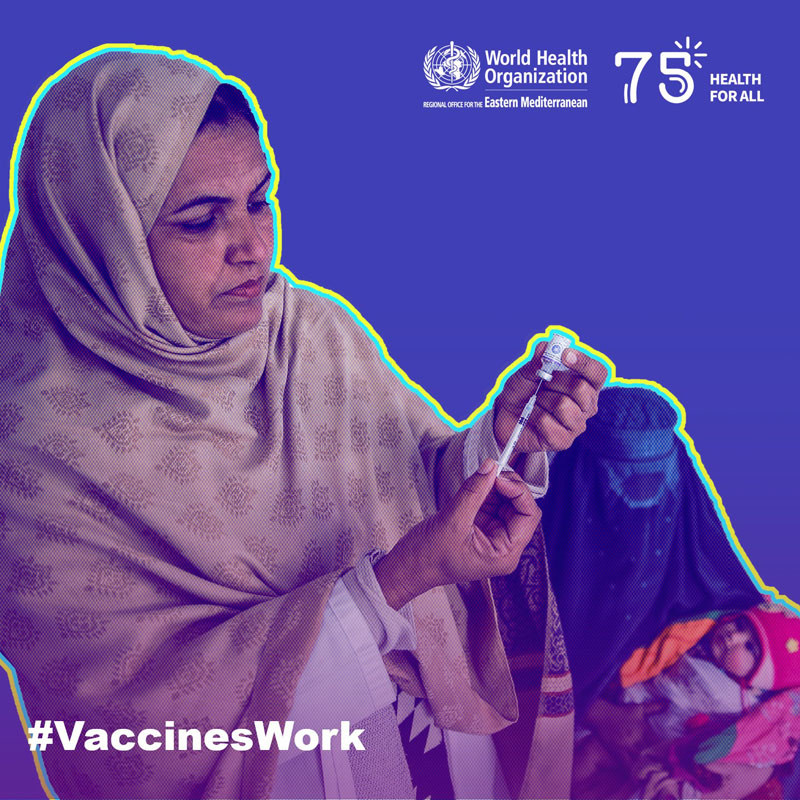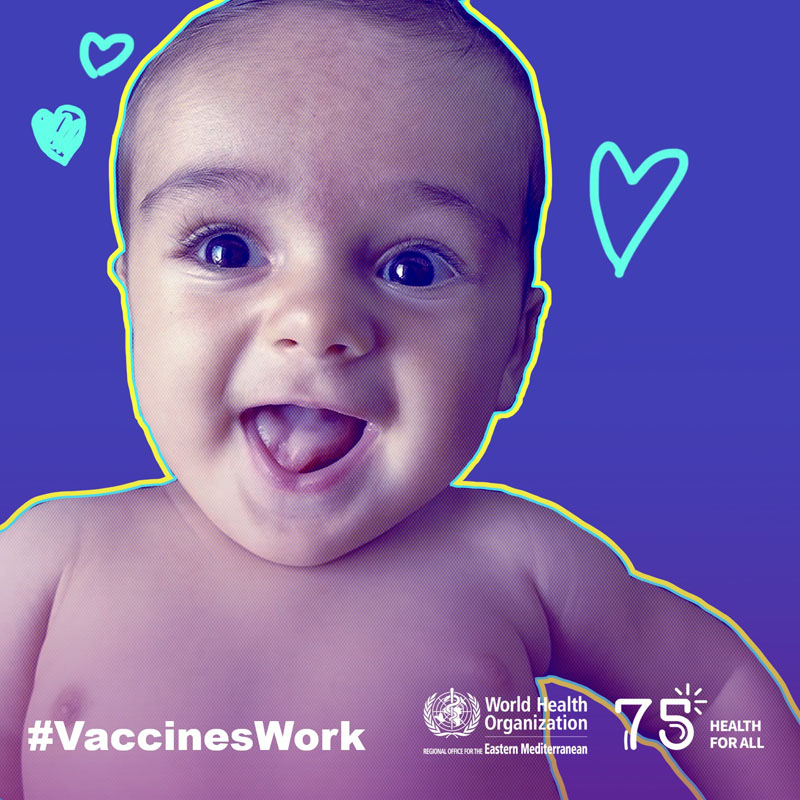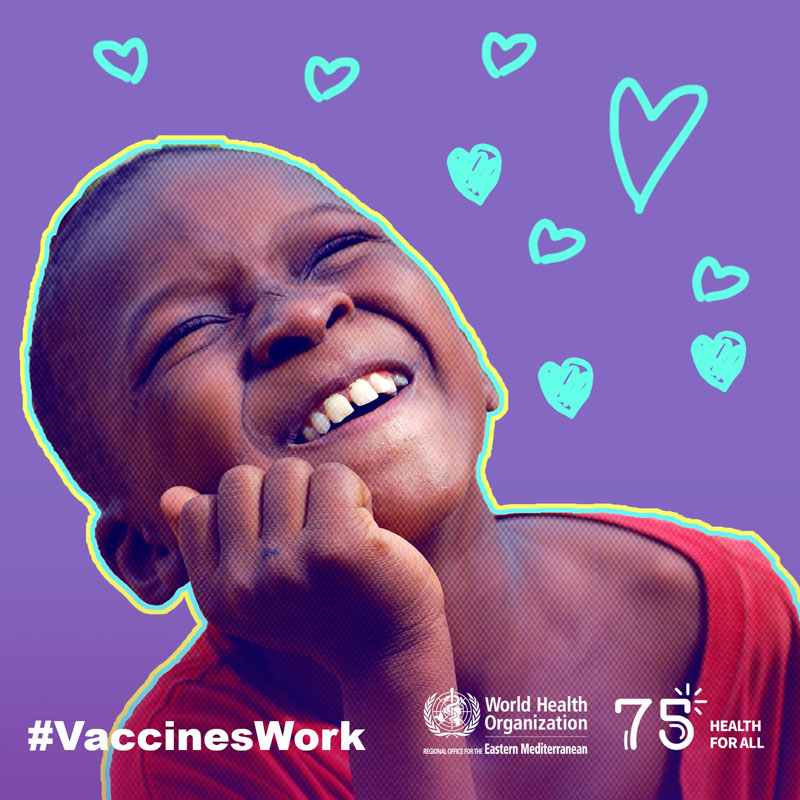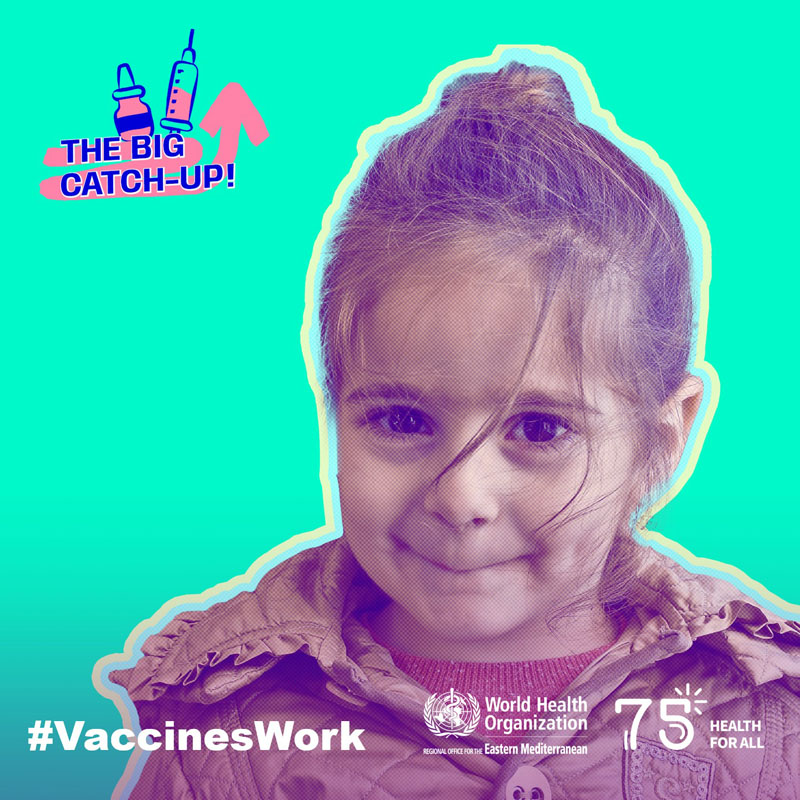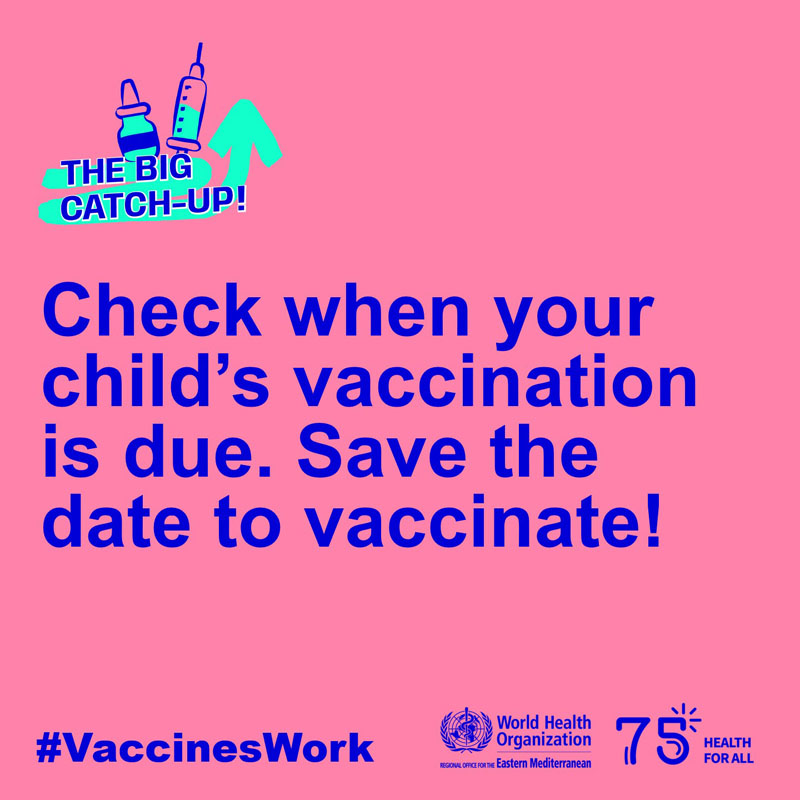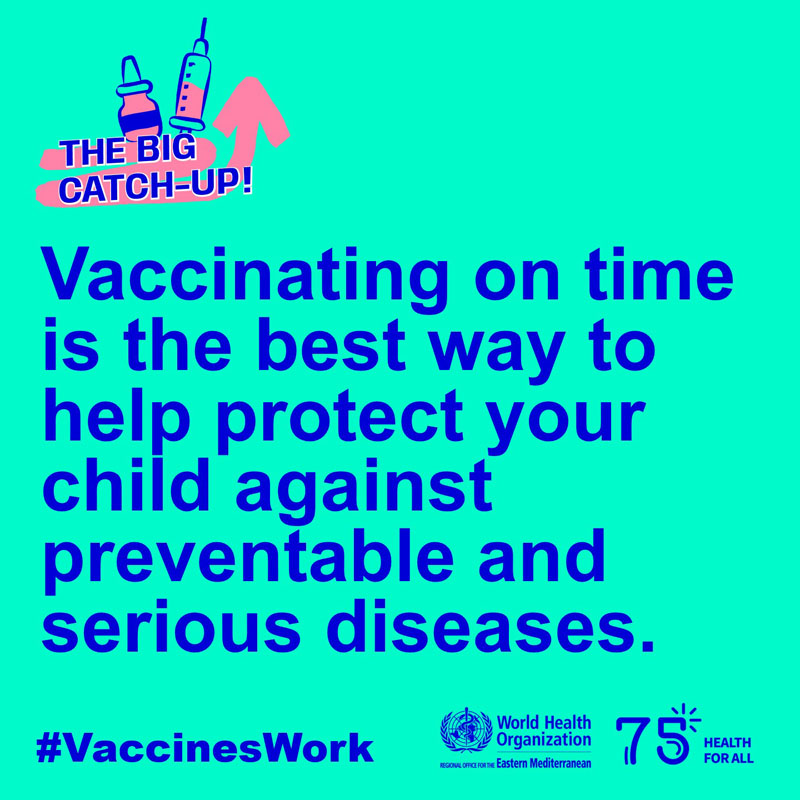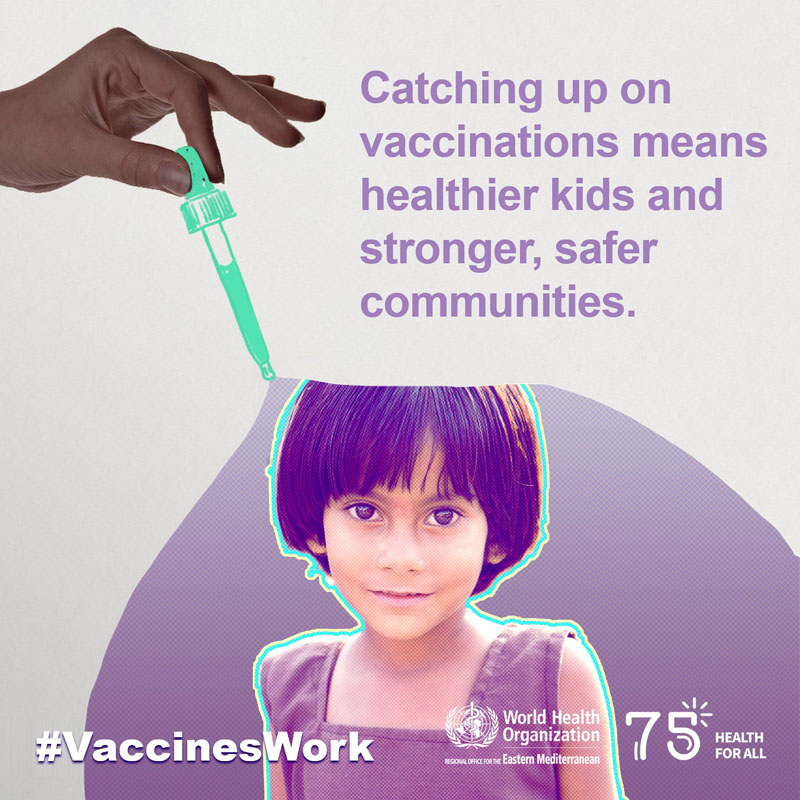World Immunization Week 2023

World Immunization Week, celebrated globally each year during the last week of April, highlights the importance of vaccines in offering protection to people of all ages against many diseases.
World Immunization Week unites partners and people behind a focused global campaign to highlight the life-saving importance of vaccines. Our aim is to reach children who missed out on routine vaccination, return to at least 2019 coverage levels for children born in 2023, and strengthen immunization systems as part of primary health care.
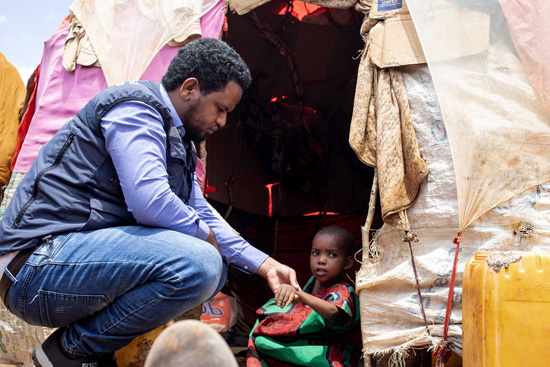
The Big Catch-up

This year, during World Immunization Week 2023, WHO, along with its global partners, is launching a “The Big Catch-Up” campaign – a year-long initiative that has three objectives:
 First, to catch-up, which means reaching children who have missed out on their routine Vaccinations;
First, to catch-up, which means reaching children who have missed out on their routine Vaccinations;
Second, to restore, which means getting back to at least 2019 coverage levels for children born in 2023;
Third, to strengthen immunization systems as part of primary health care.
Vaccine facts
- Vaccination is the most cost-effective public health intervention.
- The first vaccine was developed in 1796 against the deadly disease of smallpox.
- Smallpox was eradicated globally in 1980 as a result of vaccination.
- Vaccines prevent illness and save millions of lives.
- Vaccines can protect health at every stage of life – during childhood, adolescence, adulthood and old age.
- Vaccines can prevent certain cancers such as liver cancer and cervical cancer.
- Vaccines are the most effective tool against pandemics.
- Vaccines not only protect health but also protect national economies by keeping the workforce healthy.
- Vaccination of health care workers helps to build a resilient health system during a pandemic.
- All WHO pre-qualified vaccines are safe and effective.
- Investing in transformative technology facilitates faster development of new vaccines and improvements to existing vaccines.
- Vaccines can create a world in which no one dies from a vaccine-preventable disease.
Regional statistics
lives were saved among children under 5 in the WHO Eastern Mediterranean Region because of measles vaccination.
children in the Region did not receive their measles vaccine and 4.5 million children missed out on routine vaccinations between 2020 and 2021
children remained unprotected against measles in the Region, and 2 million of these did not receive any vaccinations (were “zero-dose” children) in 2021
Countries immunization success stories
Sudan's response to the 2023 polio outbreak showcases coordination
For Yemen’s children, the path to a polio diagnosis starts with a remarkable road trip
Syria takes steps to advance polio transition while strengthening essential health priorities
An additional 900 000 doses of cholera vaccines arrive in Lebanon
Measles-rubella campaign undertaken to prevent disease outbreaks in Pakistan
Building back better to boost childhood immunization, in the midst of a severe drought
Protecting children from measles in drought-affected Somalia
Campaign materials
Posters
Social media tiles








